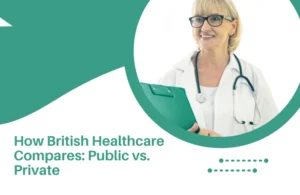
VPN is an acronym for virtual private network. It allows users to establish secure connections across public networks.
VPN aims to protect private information with the help of an encrypted connection. VPN connections are of common use in corporate settings and public domains where cyber threats are a frequent occurrence.
VPN connections are seen to affect internet speed. You can avail an internet connection powered with Optimum bundles to get uninterrupted access and speed. The ultimate goal of VPN is to protect online privacy from hackers, ISPs, and government institutions.
How Does a VPN Work?
A VPN conceals your IP address (a combination of numbers assigned to your device by your ISP) by directing the traffic via a specially configured remote connection managed by a VPN host.
VPN servers act as data hosts whenever netizens use them to surf the internet. They prevent internet service providers (ISPs) and other third-party websites and applications from monitoring online activity.
In case your data is intercepted, it won’t be readable until it reaches its destination. Think of it as a “private tunnel” that directs your internet traffic till the very end without allowing unauthorized entities to discover it.
What Are the Benefits of Using a VPN?
In addition to protecting your data against cyber threats, VPN allows you to access restricted websites from anywhere around the world.
It also assigns a new IP address to your device, thereby making it impossible for your ISP, cyber criminals, and government institutions to decipher it. Other benefits of using a VPN include:
- Better security against rogue Wi-Fi networks and untrusted connections
- Strong encryption that prevents third parties from tracking your activities and information
- Access to regional content with VPN location spoofing
- Secure transfer of data from remote locations
When Should I Connect to a VPN Server?
Some people use VPN whenever they connect to the internet. But there are situations when a VPN can come in handy. Consider using a VPN whenever you are:
- Using open internet – VPN protects your information through strong encryption
- Travelling – VPN lets you access local websites and applications
- Streaming – VPN unblocks access to restricted websites
- Shopping – VPN protects your account information from online merchants
- Gaming – VPN creates a smooth gaming experience by reducing ping and other lags
- Torrenting – VPN keeps your address shielded from strangers
What Are the Types of VPN?
In all, there are three types of VPN connections: commercial, corporate and self-setup. Consumers use commercial VPNs, also called remote access VPNs, to browse online anonymously and access restricted sites and applications.
Companies, on the other hand, use corporate VPN services to provide network access to remote employees. The third category of VPNs comprises of DIY VPNs. These connections, however, do not provide the same features as paid VPN services.
Remote Access VPNs (for individuals)
The primary benefit of remote access VPNs is that they provide added convenience to users. You do not need to be tech savvy in order to run a VPN for personal use.
The benefits of using a remote access VPN are tremendous. You can browse online safely as well as access websites otherwise blocked by your internet service provider.
ExpressVPN is a popular VPN service among PC and Mac users. CyberGhost VPN, on the other hand, is widely used on smartphones.
Site-to-Site VPN (for large corporations)
Having a VPN connection that meets the requirements of large-scale corporations has become of utmost importance. This is where site-to-site VPN chimes in.
They are designed to provide access to remote locations and resources. However, these sophisticated solutions are purpose built and can only be operated with expertise and dedicated equipment. Also, corporate VPNs lack the flexibility offered by private VPN services.
Perimeter 81 is a prime example of a corporate VPN connection. It comes with cloud computing and an intuitive control panel to provide ease of use to large-scale corporations. Another perk of this particular VPN service is that it does not require any external hardware to operate.
Home-based Setups
DIY hobbyists and several tech experts recommend setting up private VPN connections in case you do not have a commercial VPN service. But this type of VPN does not offer the benefits that come with commercial VPN connections.










